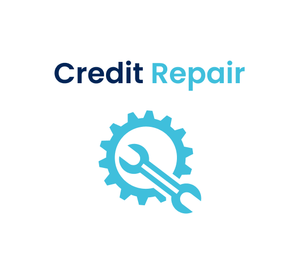Fix Credit: A Comprehensive Guide to Improving Your Credit Score
Posted By phillip mendez
Body
Your credit score is a crucial factor in determining your financial health and opportunities. A good credit score opens doors to better loan rates, credit card approvals, and various financial benefits. If your credit score is less than ideal, there are steps you can take to fix and improve it. In this comprehensive guide, we will explore effective strategies to help you fix credit and achieve a stronger financial foundation.
1. Obtain Your Credit Reports:
The first step in fixing your credit is to obtain copies of your credit reports from the three major credit bureaus – Equifax, Experian, and TransUnion. Under federal law, you are entitled to one free credit report from each bureau annually. Review these reports carefully to identify any inaccuracies, errors, or negative items that may be impacting your credit score.
2. Dispute Inaccurate Information:
If you find any discrepancies or inaccuracies on your credit reports, initiate a dispute with the credit bureaus. You can do this online, by mail, or over the phone. Provide supporting documentation to back up your claim and request that the incorrect information be removed or corrected. The credit bureaus have 30 to 45 days to investigate and respond to your dispute.
3. Address Delinquent Accounts:
To fix your credit, address any delinquent accounts promptly. Work out a repayment plan with creditors or collection agencies, if applicable, to settle the outstanding debts. Paying off or settling these accounts will show creditors that you are taking responsibility for your debts, which can have a positive impact on your credit score.
4. Reduce Credit Card Balances:
Credit card balances have a significant impact on your credit score, particularly in relation to your credit utilization ratio. Aim to keep your credit utilization below 30% by paying down credit card balances. Focus on paying off high-interest cards first and avoid maxing out your credit cards.
5. Establish Positive Credit History:
Building a positive credit history is essential for credit improvement. If you don't have existing credit accounts or your credit history is limited, consider applying for a secured credit card or becoming an authorized user on someone else's credit card. Make small purchases and pay off the balance in full each month to demonstrate responsible credit behavior.
6. Pay Bills on Time:
Consistently paying your bills on time is one of the most crucial factors in fixing your credit. Late payments can have a significant impact on your credit score, so set up payment reminders or automatic payments to ensure you never miss a due date.
7. Be Cautious with Credit Inquiries:
Avoid making multiple credit inquiries within a short period. Each hard inquiry can temporarily lower your credit score. Be selective when applying for new credit and only do so when necessary.
8. Negotiate with Creditors:
If you are struggling to meet your financial obligations, consider reaching out to your creditors to discuss hardship programs or alternative payment arrangements. Some creditors may be willing to work with you to find a solution that prevents further damage to your credit.
9. Seek Professional Help:
If you find credit repair overwhelming or challenging, consider seeking assistance from a reputable credit counseling agency or credit repair company. These professionals can offer guidance and personalized strategies to fix your credit effectively.
10. Monitor Your Progress:
Regularly monitor your credit reports and credit score to track your progress. Be patient and consistent in your efforts, as fixing your credit takes time and dedication.
Conclusion:
Fixing your credit is a gradual process that requires discipline and responsible financial behavior. By following these steps and taking proactive measures, you can steadily improve your credit score over time. Remember, there are no quick fixes, but with determination and the right financial habits, you can achieve a stronger credit profile and open doors to better financial opportunities.












Comments